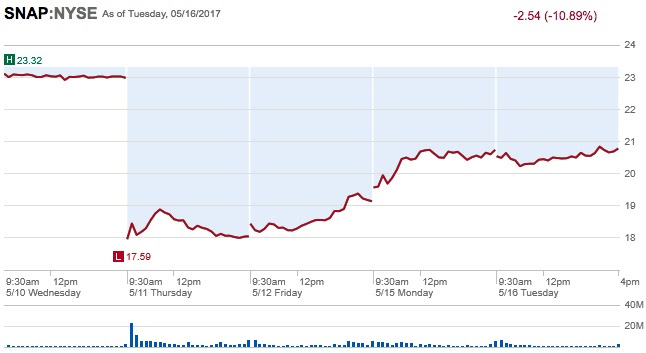The Senate and Amazon...and Your Wallet.
/I hope you are gearing up for the last week of June. Oh my! Like you, I’ve been spending a lot of time reading about the Senate Health Bill. Man, we are living through a difficult time in our country. Between our President and our Congress, sometimes I just want to bury myself in a hole. Unfortunately, we don’t have that luxury.
I’ve come to the conclusion that the bill is bad for all of our wallets. While we may not think we’re affected, the bill has an impact on the entire health care system. And when the system gets impacted we all suffer, as the indirect effects find a way to impact our finances. The New York Times reported on the Congressional Budget’s report on how the bill will affect us. Here’s several main points that make me angry about the bill:
- It would increase the number of people without health insurance by 22 million by 2026 – unacceptable
- Deductibles would be higher, in many cases – this is not good
- Premiums for most older people would be higher – higher costs does not ease the strain for the system
- Nearly half of all Americans could be affected by these cutbacks in “essential benefits,” and that as a result, coverage for maternity care, mental health care, rehabilitation services and certain very expensive drugs “could be at risk.”
While the Affordable Care Act is far from perfect, I believe that everyone should have access to quality healthcare, and that it should be affordable. Even as I reflect on my own insurance coverage through my employer-sponsored package over the last few years, it’s apparent that I have been paying more for less services that are covered. Hmmmm…
We all will continue to allocate a significant portion of our income to spending on health care, and thus we should continue to watch (and speak about) how we will tackle these issues as a country in the months and years to come.
What else has grabbed my attention? Amazon Foods – That’s my own name for the Amazon’s announced purchase of Whole Foods. I’ve been processing this one for the last week and a half and I’m still fascinated by the $13.7 billion dollar price and the decision. If you saw Bloomberg’s article, "Expensive New E-Commerce Operation Compete With Amazon?," describing how Wal-Mart bought Jet.com to keep Amazon from dominating e-commerce, you know that it’s now a show-down between the big gorillas in shopping. Who will win on making the experience for customers like you and me affordable, easy, and different?
With Amazon’s announced purchase of Whole Foods, we have the master of online in Amazon (raise you’re glass if you’re an Amazon Prime junkie like me), and the master of seduction in Whole Foods, who lures you into a store to take your whole paycheck (me too).
Time will tell whether Amazon will benefit most from the Whole Foods’ data treasures, brick-and-mortar presence, supplier base, or distribution integration opportunities. I am confident that Amazon will find a way to disrupt and make anew how we spend our money and thwart off Wal-Mart. You won’t want to miss what happens here in the years to come.
If you own Whole Foods stock, please share with me in the comments if you’re pleased with the acquisition and your thoughts on where Amazon is going next.


 The Inequity of Mortgage Interest Deduction
The Inequity of Mortgage Interest Deduction

